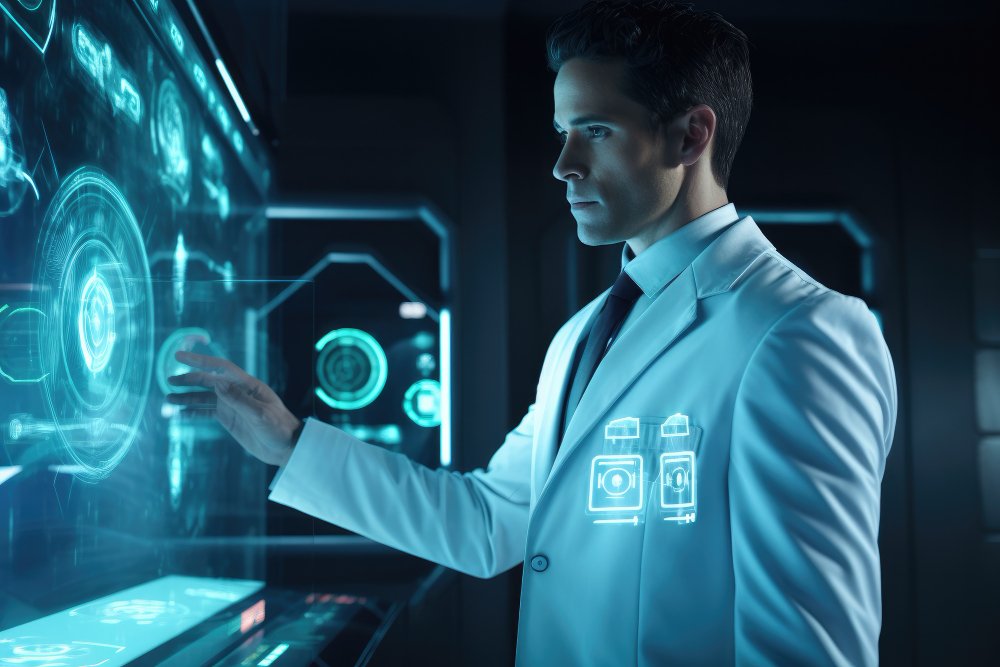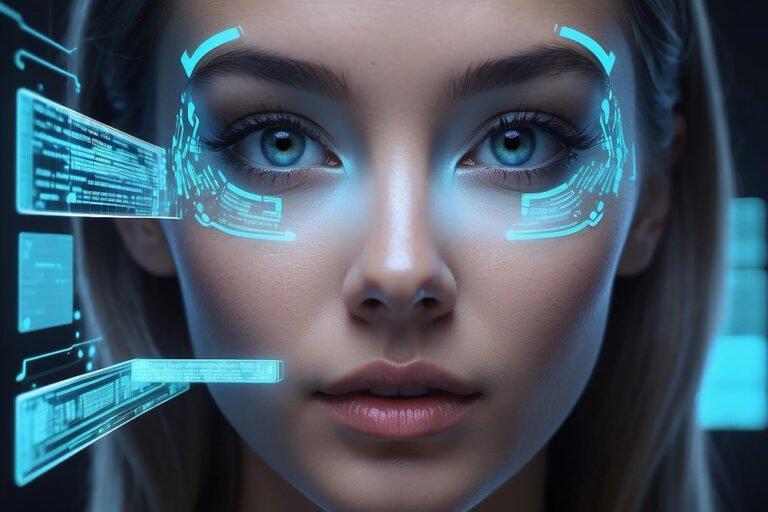Will AI completely replace doctors in the future or will it work alongside them?
The integration of artificial intelligence (AI) in healthcare is one of the most transformative developments in modern medicine. With advancements in machine learning, natural language processing, and data analytics, AI has the potential to revolutionize how medical services are delivered, improving both efficiency and outcomes. However, the question remains: will AI completely replace doctors in the future or will it work alongside them?
What Is AI in Healthcare?
AI in healthcare refers to the use of algorithms and software to approximate human cognition in the analysis of complex medical data. The primary aim is to analyze relationships between prevention or treatment techniques and patient outcomes. AI programs are applied to practices such as diagnosis processes, treatment protocol development, personalized medicine, and patient monitoring and care.
Diagnostic Capabilities
Diagnostics is one of the most promising applications of AI in healthcare. AI algorithms are capable of analyzing medical images, including X-rays, CT scans, and MRIs, with remarkable precision. For example, AI systems have demonstrated a higher accuracy rate than human radiologists in detecting breast cancer in mammograms. In a study published in Nature, an AI model developed by Google Health showed a reduction in false positives and false negatives compared to radiologists, highlighting the potential for AI to enhance diagnostic precision.
Personalized Treatment Plans
AI can also play a significant role in creating personalized treatment plans. By analyzing vast amounts of data from various sources, including genetic information, medical history, and lifestyle factors, AI can help devise treatment plans tailored to individual patients. IBM’s Watson for Oncology, for instance, can process and interpret large volumes of medical literature and clinical data to assist oncologists in developing personalized cancer treatments.
Predictive Analytics
AI is also making significant advancements in the field of predictive analytics. AI systems can predict patient outcomes based on historical data, which can be critical in managing chronic diseases and preventing complications. For example, hospitals use AI to predict patient readmission rates and implement early intervention strategies. The University of California, San Francisco, has developed an AI-based predictive model that can foresee acute kidney injury in patients, allowing for timely interventions.
Real-World Examples of AI in Healthcare
Several real-world applications illustrate the transformative potential of AI in healthcare:
- DeepMind’s AI for Eye Disease: DeepMind, a subsidiary of Alphabet Inc., developed an AI system capable of diagnosing over 50 eye diseases with accuracy comparable to world-leading doctors. The AI analyzes optical coherence tomography (OCT) scans to detect diseases such as diabetic retinopathy and age-related macular degeneration.
- PathAI for Pathology: PathAI is an AI-powered platform designed to improve the accuracy of pathologists. By analyzing pathology slides, PathAI’s algorithms can identify patterns and anomalies that may be missed by the human eye, thus aiding in more accurate diagnoses of diseases like cancer.
- Aidoc for Radiology: Aidoc uses AI to analyze medical images and identify acute abnormalities. This system works alongside radiologists, flagging potential issues for further review. Aidoc has been deployed in numerous hospitals and has demonstrated a significant reduction in turnaround time for radiology reports.
- Babylon Health for Primary Care: Babylon Health offers an AI-powered app that provides medical advice based on user-reported symptoms. The app uses a vast database of medical knowledge to suggest possible conditions and appropriate next steps, such as visiting a doctor or taking specific medications.
The Limitations and Challenges of AI in Healthcare
Despite its potential, AI in healthcare faces several challenges and limitations:
- Utilizing AI in healthcare requires the handling of sensitive patient data.
- Ensuring data privacy and security is paramount, and there are significant concerns regarding data breaches and misuse.
- AI systems can incorporate biases that exist in their training data. If not addressed, these biases can lead to disparities in healthcare delivery. For instance, an AI system trained on data predominantly from a specific demographic may not perform well on patients from diverse backgrounds.
- The implementation of AI in healthcare is subject to stringent regulatory requirements. Additionally, ethical concerns, such as the potential for AI to make life-and-death decisions, must be carefully managed.
- Integrating AI solutions into existing healthcare systems and workflows can be challenging. Ensuring that AI tools are user-friendly and interoperable with other medical technologies is crucial for their successful adoption.
AI Working Alongside Doctors: A Collaborative Future
Given the current state of technology and the challenges associated with AI, it is unlikely that AI will completely replace doctors in the near future. Instead, AI is poised to work alongside healthcare professionals, enhancing their capabilities and allowing them to focus on more complex and human-centric aspects of care.
Enhanced Decision-Making
AI can serve as a decision support tool, providing doctors with evidence-based recommendations and identifying potential issues that may require further investigation. This collaborative approach can improve diagnostic accuracy and treatment efficacy.
Improved Efficiency
AI can automate routine tasks, such as data entry and analysis, allowing healthcare professionals to spend more time with patients. For example, natural language processing (NLP) algorithms can transcribe and organize clinical notes, reducing the administrative burden on doctors.
Augmented Skills
AI can augment the skills of healthcare professionals by providing them with access to the latest medical research and treatment guidelines. This can be particularly valuable in specialized fields where staying current with the latest advancements is challenging.
AioTechnical.com:
AioTechnical.com, we believe in the transformative power of AI to revolutionize healthcare. Our mission is to develop cutting-edge AI solutions that enhance the capabilities of healthcare professionals, improve patient outcomes, and streamline medical processes. By leveraging the latest advancements in AI technology, we aim to create a future where AI and human expertise work hand-in-hand to deliver the highest quality of care.
Our commitment to innovation is driven by a deep understanding of the challenges and opportunities in the healthcare sector. We work closely with medical professionals, researchers, and regulatory bodies to ensure that our AI solutions are safe, effective, and ethical. At AioTechnical.com, we envision a world where AI empowers doctors, reduces disparities in healthcare, and makes advanced medical treatments accessible to all.
Conclusion
The integration of AI in healthcare holds immense promise, but the notion of AI completely replacing doctors is not a likely scenario in the near future. Instead, AI is set to work alongside healthcare professionals, enhancing their capabilities and allowing them to provide better care for their patients. The collaboration between AI and human expertise will lead to improved diagnostic accuracy, personalized treatments, and more efficient healthcare delivery.
As AI technology continues to evolve, it is crucial to address the challenges and limitations it faces, including data privacy, bias, and regulatory concerns. By fostering a collaborative approach and leveraging the strengths of both AI and human intelligence, the future of healthcare can be one of innovation, compassion, and excellence.
Through real-world examples and the work of pioneers like those at AioTechnical.com, it is evident that AI has the potential to transform healthcare. However, this transformation will not come at the expense of human doctors but rather as a partnership that brings out the best in both technology and human expertise.







